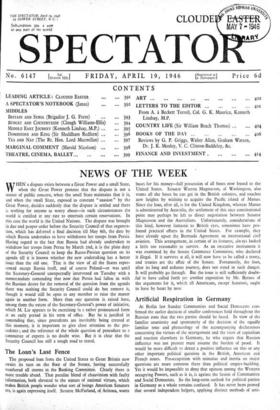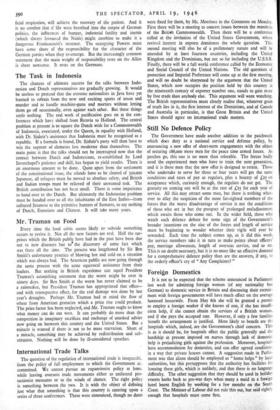Artificial Respiration in Germany
At Berlin last Sunday Communists and Social Democrats con- firmed the earlier decision of smaller conferences held throughout the Russian zone that the two parties should be fused. In view of the familiar unanimity and spontaneity of the decision of the equally familiar tone and phraseology of the accompanying declarations concerning the virtues of the arrangement and the vices of capitalism and reaction elsewhere in Germany, he who argues that Russian influence was not present must assume the burden of proof. It would be more difficult to detect a positive influence on this or any other important political question in the British, American and French zones. Preoccupation with minutiae and inertia on major questions are more common there than political empire-building. Yet it would be impossible to deny that opinion among the Western occupying Powers, such as it is, is against the fusion of Communists and Social Democrats. So the long-term outlook for political parties in Germany as a whole remains confused. It has never been proved that several independent helpers, applying distinct methods of arti-
ficial respiration, will achieve the recovery of the patient. And it is no comfort that if life were breathed into the corpse of German politics, the influences of hunger, industrial futility and inertia (which always favoured the Nazis), might combine to make it a dangerous Frankenstein's monster. The occupying Powers must have some share of the responsibility for the character of the German parties when they re-emerge. But the increasingly common statement that the main weight of responsibility rests on the Allies is sheer nonsense. It rests on the Germans.































 Previous page
Previous page